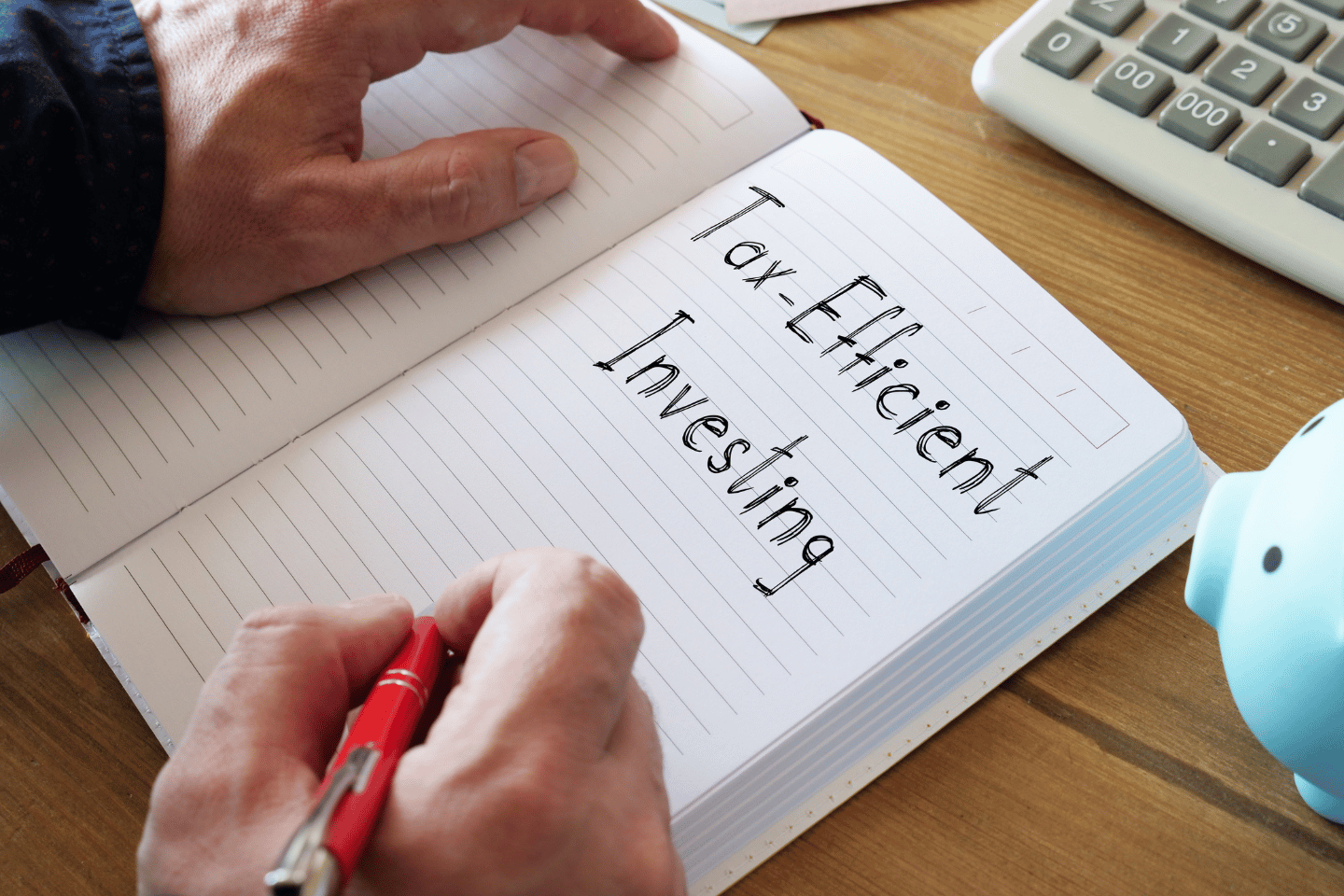Coronavirus – Managing Your Portfolio in Times of Financial Crisis
Posted on:
Raffi Pailagian
MBA, BSc, DipFP
Financial Planner / Managing Partner
(00:09) Hi, it’s Raffi from Manly Financial Services. By now I’m sure you’re sick of all the coronavirus updates. We’re seeing share markets around the world just plummeting over the last week, with the Australian share market, the ASX 200 down over 20% taking this back to 2017 levels. We’re also seeing the Dow Jones, the US market falling again over 20%, effectively wiping out all the last year’s gains. We’re seeing incidents rates across the world increase and I think we’re only going to see more of an increase in Australia as the next few weeks progress and our day to day lives will be disrupted. From a financial perspective, this disruption will lead to an economic downturn and possibly a technical recession in Australia as many commentators are predicting.
(00:52) You can say central banks and governments all around the world announcing, actively announcing measures to try to counteract this economic downturn, try to get their economies going again. On this blog, I’d love to explain five things that we can do to reduce the effects of this market correction on our portfolios, our super funds, our retirement savings and our pensions. There are probably more than five things that can be done, but these are the five issues that I think should be front of mind.
Step 1 – Take A Long Term View – But Be Mindful Of Short Term Trends
(01:20) The first point is to take a longterm view on our portfolios, but to also be conscious of short term trends. It’s important to take a longterm view because we have to see how the portfolio is progressing towards our goals and our objectives, whether their retirement goals, whether it’s saving to purchase a home or go on a holiday or whatever it may be. So it’s really important to be able to step back and have a look at where the portfolio is compared to what our particular target is, whether that’s in three years, five years, seven, 10 or more years. But it’s really also important to be conscious of short term trends. So if we think that global growth is going to be weak due to a global recession or an economic downturn, we really don’t want to be in investments that will leverage to global growth.
Step 2 – Make Sure Your Strategy Works In Volatile Markets
(02:07) The second step is much more strategic and it’s really in those scenarios where we are requiring income from our portfolios, whether they’re retirement portfolios or investment portfolios, to fund any expenses, financial commitments, retirement income or whatever it might be. We’ve got to ensure that that income that we’re generating and potentially living off of or having to fund out our ongoing expenditure is coming from defensive assets or from the yield of the particular portfolio. The last thing we want to be doing is having to sell down shares that are falling in value in these types of markets.
Step 3 – Are You Holding Good Quality Investments?
(02:45) The third step is really to look at our portfolios and look within the managed funds that we hold or the direct securities we hold, ensure that we have got good quality businesses that will stand out in an economic downturn. During an economic downturn, people are still going to go to the supermarket, they’re still going to use their banks, they’re going to be using healthcare services, telecommunication services. It’s really important during an economic downturn to ensure that the assets that we hold within our portfolio is still going to be profitable businesses.
Step 4 – Active vs Index Managers In Volatile Markets
(03:15) Fourth point really addresses the use of active managers within our portfolio if we’re using managed funds. Over the last five to 10 years, the index funds, exchange traded funds, those funds and assets that just are exposed to the index have become very popular and they’ve become very popular because they’re an easy way to invest and they’re a very cost effective way to invest. It’s been a no-brainer being invested in those assets because as the indexes in the Australian share market, the international share market, the property market, indexes have been going up. This value of the securities have also been going up.
(03:49) However, in a dynamic market where markets are quite volatile, it’s very important to be looking at investing with active managers. An active manager will look at their portfolio and ensure that it’s positioned in such a way that it can withstand a downturn by buying more defensive holdings. An active manager will also look to exit the market and hold cash. Whereas, an index holding is purely going to be fully invested within that index, which means that the investor is going to get the ups and at the moment the downs of that particular index.
Step 5 – Buy Low!
(04:27) The fifth step is really to look to continue to buy in these markets. After the GFC, a lot of investors were hesitant in terms of re-entering the market. We were all too scared. We were all too worried after the effects of that GFC to be able to buy back into the market. What if the market at that point wasn’t the bottom and there was further to go? We don’t want to be caught up in this same sort of scenario in this case, but it’s very important to get some good advice and to get an advisor that helps you enter the market because over the next five to 10 years, as those assets appreciate in value, we’re going to be in a much better position.
(05:05) These are only five amongst many actions that an investor can take in these dynamic markets. But the most important thing is not to panic, but also gain advice from a professional that’s gone through these cycles before and can help you navigate these particular markets. If you’d like some help from us, please visit our website at manlyfs.com.au and give us a call and let’s arrange a time that we can sit down, chat through the current environment, get a clear understanding of your goals and objectives, and help you get there through these dynamic and troubled markets.
Interested in knowing more?Related
Categories
- Intergenerational Wealth
- Financial Planning & Advice
- Superannuation Advice
- Retirement Financial Planning
- Investing
- Holistic Planning & Advice
- Business Advisory
- Retirement Planning
- Wealth Management
- Personal Insurance
- Mortgage Finance
- Tax Planning
- Debt Management
- Financial Planning Services
Related Posts

Investing In A Low Interest Rate Environment
Almost unbelievably, the last time there was a rate rise in Australia was November 2010, when the rate went from 4.5% to 4.75%. It’s been…
Read More
Is Income From Super Tax Free For Over 60s In Australia?
This Article Explores Whether Income From Super Tax Free For Over 60s In Australia & Specific Conditions Where This May Not Be The Case
Read More
Business Advisory Services for Small Businesses
Business Advisory Services help business owners go beyond day-to-day operational efficiency to strategic advantage over their competitors
Read More
What Are Non-Concessional Contributions
Non-concessional contributions are one of the most effective ways to grow your super faster, particularly for Australians with available capital or nearing retirement
Read More
Financial Planning For Small Business Owners In Australia
This guide on Financial Planning For Small Business Owners In Australia outlines the key principles, strategies & common mistakes
Read More
Bank Of Mum And Dad In Australia
The Bank of Mum and Dad has been officially recognised as the nation’s 10th largest source of housing finance, but what do families need to know about it?
Read More
The Intergenerational Wealth Transfer In Australia
This article investigates how Intergenerational Wealth Transfer in Australia is redefining family wealth, housing market, investment landscape & broader Australian economy
Read More
Australian Gift Tax
Gifting can be a powerful way to share your wealth, but it’s essential to understand the tax implications
Read More
The Concessional Contributions Cap
Understanding the concessional contributions cap can be a powerful tool for building retirement savings & maximising your super
Read More
What Is a Family Trust?
These days setting up a Family Trust Fund is not just for the wealthy. Many small business owners are using the vehicle of a Family or Discretionary Trust to protect their family from potential loss, whilst at the same time taking advantage of tax benefits.
Read More
The Great Wealth Transfer
Discover How Australia’s $3.5 Trillion Great Wealth Transfer Is Reshaping Housing, Superannuation & Investing Across Generations
Read More
Australian Inheritance Tax
Many Australians are still confused about Inheritance Tax & whether Australian Inheritance Tax EVEN EXISTS. So does it?
Read More
Maximising Superannuation Contributions Before EOFY
Maximising Superannuation Contributions before EOFY, can significantly enhance retirement outcomes, but would it for you?
Read More
Why Financial Literacy Matters
Financial literacy is more than a precaution, it’s a strategy that empowers you to make sound, informed decisions regardless of market fluctuations
Read More
Retirement Planning Strategies For Australians
Retirement Planning is one of the most important financial decisions you need to make & these key strategies will help you build a solid foundation for your golden years
Read More
How To Build Wealth
10 actionable strategies to help you build wealth and secure your financial future, in an easy to digest summary format
Read More
How to Fix Your Cash Flow
Wondering how to fix your cash flow? If yes this short video and article, which outlines some simple, easily implemented steps will be worth 4min’s of your time.
Read More
Is Negative Gearing A Good Investment Strategy In Australia?
Whether it’s property or shares, negative gearing has sparked debates for decades, praised for its tax benefits but is it a good strategy?
Read More
Is Your Retirement Plan on Track?
Retirement is a significant milestone in life, so how do you ensure your retirement plan is on track to provide the lifestyle you desire?
Read More
How To Create Generational Wealth
If you’re interested in understanding effective strategies to create generational wealth with property, then this article is for you!
Read More
Downsizing
Downsizing is a significant life decision that can have far-reaching impacts on both your financial health and overall well-being
Read More
Intergenerational Wealth Transfer
In this episode we discuss intergenerational wealth transfer & optimal strategies you may want to consider
Read More
Tax Effective Investing In Australia
Is your investment strategy optimised for tax efficiency & what should tax effective investing in Australia ideally include?
Read More
Investment Opportunities
With so many investment opportunities being created by the current global market environment, where should you focus?
Read More
Building Generational Wealth
Understanding the principles behind building generational wealth is becoming of increasing interest, driven by amongst other things the current cost of living increases
Read More
Mortgage Rate Update
We are celebrating our 11th Year Helping clients reduce their interest rates and realise their dream of buying a home or investment property
Read More
De-Risking Business Growth
Although de-risking business growth stands as a fundamental goal for every ambitious venture, these 6 strategies are often overlooked
Read More
Superannuation Death Benefit Tax
In Australia, superannuation is a nest egg many rely on for a comfortable retirement, but what happens to your super savings if you pass away?
Read More
Downsizer Contributions
What Is the downsizer contribution concession and why could this be relevant to you if you’re nearing retirement?
Read More
Risk Profiling
Risk Profiling is possibly the most important but often the most misunderstood and overlooked element when investing
Read More
How To Use Debt To Create Wealth
Not all debt is created equal. In fact, if you’re careful and think about it strategically, you can actually use debt to create wealth
Read More
Looking for a Home Mortgage?
Developing a good understanding of the key concepts, before looking at specific mortgage products, can help with fast tracking the selection process.
Read More
What Is Refinancing?
What is refinancing, when should you do it, does refinancing impact your credit rating, & is there anything else you need to know?
Read More
Financial Wellbeing
It’s easy to assume higher income means more financial wellbeing, and there is a strong correlation, but it is not the only factor at play.
Read More
Why Use A Mortgage Broker
With a wealth of information at all our fingertips thanks to the internet, you might wonder why use a mortgage broker?
Read More
Reasons To Refinance
With interest rates rising, it’s worth understanding how you can benefit by going to the trouble of refinancing.
Read More
Tax Deductions On Investment Property
Property is a popular investment asset, particularly in Australia, due to whole host of attractive benefits which include the allowable tax deductions on investment property
Read More
Tax Bracket Creep
We thought this might be a good time to take a look at the current income tax system and how you might be able to mitigate its effect on your take home income.
Read More
Home Mortgage Rates
With the significant increase in Home Mortgage Rates over the last 10 months, what options are there to minimise their impact?
Read More
How Much Do You Need to Retire?
If you feel like the answer to this question is a constantly moving target, you’re right. Working out how much you need to retire can be a complicated task.
Read More
Sustainable Investing
So what is sustainable investing, how can it help your bottom line & does it makes sense for more people to be considering?
Read More
Estate Planning
You probably have at least a vague idea about how you would like your assets, or your ‘estate’, to be divided amongst your family, loved ones and other potential beneficiaries, but you won’t be there to oversee what happens.
Read More
5 Small Business Strategies
There is a temptation in business to review small business strategies at the beginning of the new financial year, but sometimes a better choice can be the new calendar year.
Read More
Financial Planning For A Great Year
With the current high inflation, high interest rate environment, it has never been more important to take a serious look at your financial position
Read More
Retirement Planning For Small Business Owners
Retirement planning for small business owners can be much more complex than for employed people, due to a selection of factors.
Read More
Applying for a Mortgage
Applying for a mortgage is both exciting and scary, but there are a few things you should know, that can move the needle away from scary, towards exciting
Read More
Downsizing Before Retirement
This is a tricky question to answer because it impacts your lifestyle and your family as well as your finances. So there are a number of things to consider when weighing this decision.
Read More
Home Loan Mortgage Rates
Buying a home is usually the single most significant financial decision a person makes. With no end in sight for the predicted home loan mortgage rates rises, reviewing your home loan strategy makes a great deal of sense.
Read More
Small Business Insurance
There’s no doubt about it, running a small business is tough. Not only do you need to manage the business, but you need to think about the inherent risks and how you might manage those should the worst happen.
Read More
Estate Planning For Business Owners
Whether it is a family run business, partnership, or a company structure, you need to determine how ownership and running of the business will work should you not be available.
Read More
Why Start A Business?
One of the key things to remember when you delve into the waters of setting up your own business, is that you are working towards future goals.
Read More
Cashflow Tips
So what can we do to manage our finances as effectively as possible in this current environment?
Read More
Family Business Succession Planning
One of the most important things you can do as a family business owner is succession planning. You haven’t spent years of your life building a successful business only to have it fall over when you want to retire, or are no longer able to run it.
Read More
Investing in Property
Owning your own home has long been known as the Great Australian Dream, but these days, investing in property seems to come a pretty close second.
Read More
Keeping Up With The Joneses
The Keeping Up With The Joneses Mindset Can Have A Devastating Effect On Your Finances & Result In Insufficient Funds To Support You In Retirement
Read More
Get Rich Quick Schemes
High returns usually come with high risk, so when a scheme sounds too good to be true, it probably is!
Read More
Insurance Cover
Australia has certainly been through the wringer over the past three years. As confronting as it may be, it is essential to be prepared for the unexpected & understanding what insurance cover you need is a good start point
Read More
Quarterly Economic Update
As bad as this might seem, Australia still has one of the lowest inflation rates among OECD nations, beaten only by Japan and Switzerland, at the bottom of the inflation table
Read More
Saving for Retirement?
Saving for Retirement or Supporting Your Children? There are ways to do both & still ensure you have enough to retire comfortably, but it requires a little bit of planning
Read More
What is Inflation?
So what is inflation? It’s a complex beast & understanding the impact it can have will help you make wiser financial decisions.
Read More
Financial Fraud
Personal and financial fraud is on the rise. 11% of Australians experienced some form of fraud in 2021 & losses due to investment fraud were up 119.6% compared to the same period in 2020.
Read More
Saving For A House Deposit?
Should you invest your house deposit savings? This article investigates the pros & cons through a mini case study.
Read More
Inheritance & Movement Of Wealth
Australians pass on average $561,000 to their heirs, almost four times the global average of $148,000, with two in every three Australians planning to leave an inheritance.
Read More
Inflation & The Cash Rate
What is the Cash Rate & how will the changes applied today impact inflation and your financial situation?
Read More
2022-23 Federal Budget Highlights
The Federal Government has delivered a big-spending 2022 budget, taking immediate steps to reduce cost of living pressures for working Australians while implementing a range of massive infrastructure and defense spending measures.
Read More
Working from Home – Tax Optimisation Opportunities
Working from home and not sure what tax optomisation opportunities may be available to you, well this short article would be worth reading
Read More
Digital Assets – Pros & Cons For Investors
What are the advantages & disadvantages of digital assets compared with physical assets from an investors point of view?
Read More
BNPL vs Credit Cards – Which is Best?
BNPL (Buy Now Pay Later) or Credit Cards, what do they have to offer and which is the most financially efficient approach for consumers?
Read More
Portfolio Management During Turbulent Times
There’s no doubt we continue to live in turbulent times. Between the challenges and uncertainty of the pandemic, the instability in eastern Europe & ongoing supply chain issues, effective portfolio management is a prominent topic amongst investors.
Read More
Super Success For Women
While women earn less and spend less time in the workforce than men, sharply eroding their super contributions throughout their working lives, there are some simple steps women can take to boost their retirement savings.
Read More
Retirement Cashflow
Low-interest environments are great for borrowers but can be a disaster for retirees reliant on interest to provide retirement cashflow.
Read More
Stock Market Corrections
Stock Market Corrections can be an opportunity or a curse, depending on how you have set up your investments, are you taking full advantage of the opportunities?
Read More
Ethical Investing
Ethical Investing – what does this mean for you as an individual investor, what should you look for & why does it even matter?
Read More
The Great Resignation
What is the Great Resignation, is this a trend you should be part of & how is it impacting business owners as well as investors?
Read More
Transitioning To Retirement?
Transitioning to retirement & not sure of the most tax-efficient method or whether a TRIS is needed?
Read More
Investing In Real Estate
If you are going to or are investing in Real Estate, there are a few key things to consider…
Read More
Financial Freedom
What is Financial Freedom, how is it different from Financial Independence and how do you achieve it?
Read More
Financial Literacy
One thing it’s important to understand, is being highly educated does not necessarily mean you have good financial literacy. The two do not always go hand in hand
Read More
Bull vs Bear Market
Understanding the difference between a Bull & Bear Market, combined with the opportunities they present, can help greatly when formulating an investment strategy.
Read More
Stocks And Shares – What You Need To Know
So, when it comes to stocks and shares, what do you need to know before investing? Understanding the language can be a great first step.
Read More
What To Do With An Inheritance
Sometimes in life a small or not so small windfall comes our way. It can be tempting to rush out and spend it, but it is worthwhile taking the time to think about how best you can make this money work for you.
Read More
Financial Planning For Women
While preparing a financial plan is much the same for men and women, there are a few key things we need to factor in when developing financial plans for women.
Read More
Retirement Planning Strategies
It may seem obvious, but lack of planning is what can lead to disappointment come your retirement party.
Read More
Independent Financial Advice
How do you make sure the advice you are getting is independent and perhaps more importantly transparent?
Read More
Are Gifts Tax Deductible?
According to the Tax Office, not all gifts are created equal. Depending on the type of gift, and more specifically, to whom the gift is made, the tax implications of gift giving differ.
Read More
Portfolio Reviews & Effective Approaches
So, you have a financial plan in place. You’re set. Right? Well, for a while at least. While financial experts sometimes disagree on methods or theories, there is one thing they all agree on, this is not a set-and-forget activity.
Read More
June Tax Preparation Tips
Tax time is one of those chores of life that nobody enjoys. It can be a real pain. Not only do you have to scramble to find all the receipts and statements you have misplaced over the course of the year, but there is often a fear that you will end up with a great big, unexpected tax bill. Or even worse – get an audit notice.
Read More
Best Way To Begin Investing
Not sure what the best way to begin investing? For many people, the prospect of starting the investment journey is daunting. How much do I need? What should I invest in? How can I make sure I make the right decisions?
Read More
How To Build Your Investment Portfolio
How To Build Your Investment Portfolio – Assets, Risk & Return
Read More
The Compound Interest Formula
It’s likely you have likely heard this term the compound interest formula, bandied around a lot in financial circles.
Read More
The Impact Of Compound Interest
Almost unbelievably, the last time there was a rate rise in Australia was November 2010, when the rate went from 4.5% to 4.75%. It’s been…
Read More
How to be Financially Independent
We all strive for financial independence in retirement. But what if you could achieve…
Read More
How To Build Wealth In Your 50s
In your 50s, many people start to worry, even panic, that they have left it too late to start building the wealth they will need for their…
Read More
How To Start Investing – The Wealth Tank Concept
Almost unbelievably, the last time there was a rate rise in Australia was November 2010, when the rate went from 4.5% to 4.75%. It’s been…
Read More


